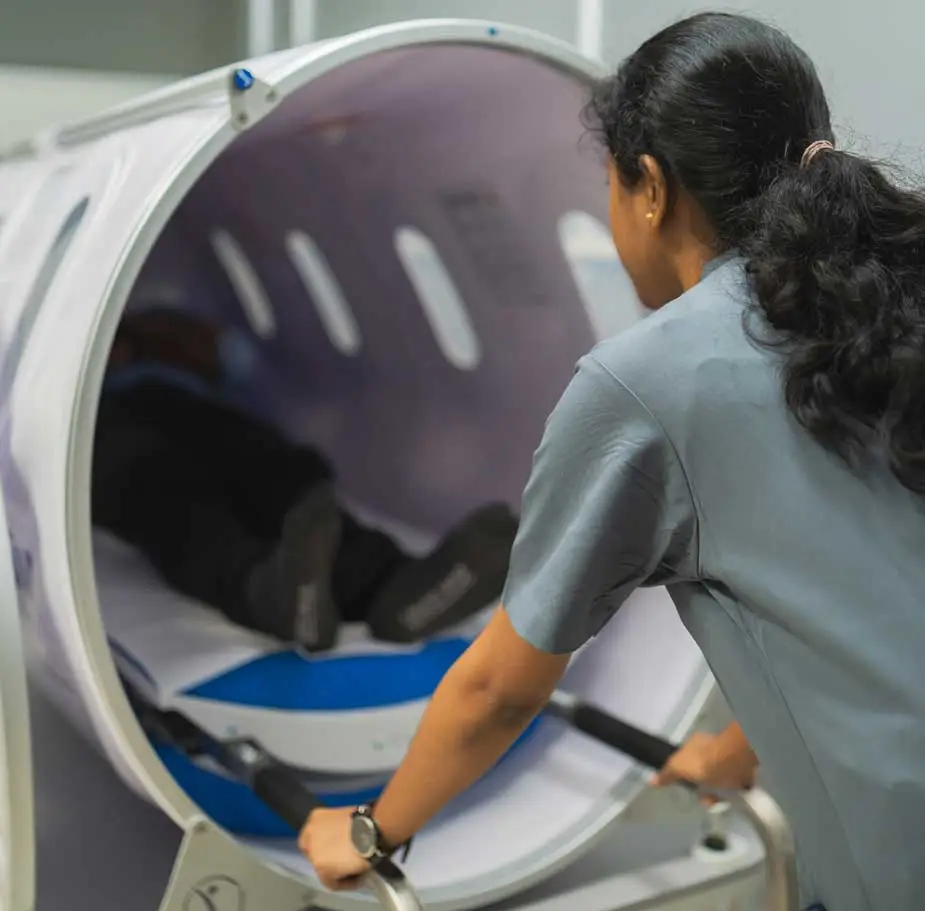Persistent Post Concussive Syndrome
Symptoms
Symptoms of persistent post-concussive syndrome may include:
Cognitive difficulties
Persistent headaches
Sensitivity to light and noise
Unsteadiness
Sleep disturbances
Mood swings or irritability
Memory deficits
Difficulty concentrating
Fatigue and decreased energy
Challenges with daily activities and emotional well-being.
Causes
Causes for persistent post-concussive syndrome may include:
Diagnosis
Diagnosis for persistent post-concussive syndrome rehabilitation may involve:
Treatments
For Persistent Post-Concussive Syndrome (PPCS) rehabilitation, a customized approach is essential. Our program typically includes exercises for postural correction, muscle strengthening to support recovery and flexibility improvement.
Our Stroke & Traumatic Brain Injury Recovery Program offers a comprehensive approach to rehabilitation. Central to our approach is Hyperbaric Oxygen Therapy (HBOT), a state-of-the-art treatment delivering pressurized oxygen to promote cellular repair and reduce inflammation in the brain. In conjunction with HBOT, our program includes targeted physical therapy exercises for postural correction, muscle strengthening, and flexibility improvement. Speed therapy aims to improve how the brain processes information, while cognitive therapy addresses specific deficits resulting from the injury. Gait and coordination training aim to refine motor skills essential for daily activities. Additionally, electrotherapy modalities such as IFT, Ultrasound, and TENS contribute to physiotherapy management. Pain management strategies are seamlessly integrated to ensure comfort throughout the rehabilitation process.

